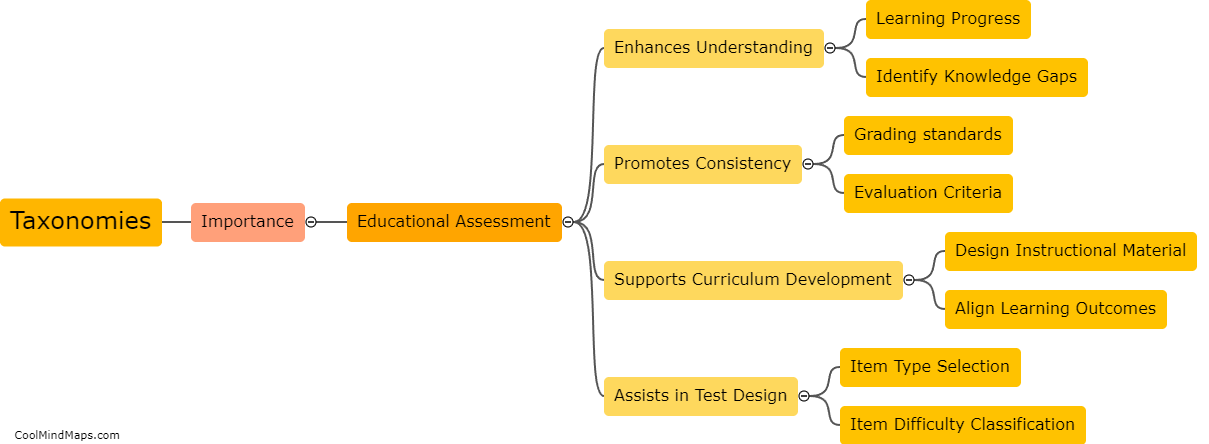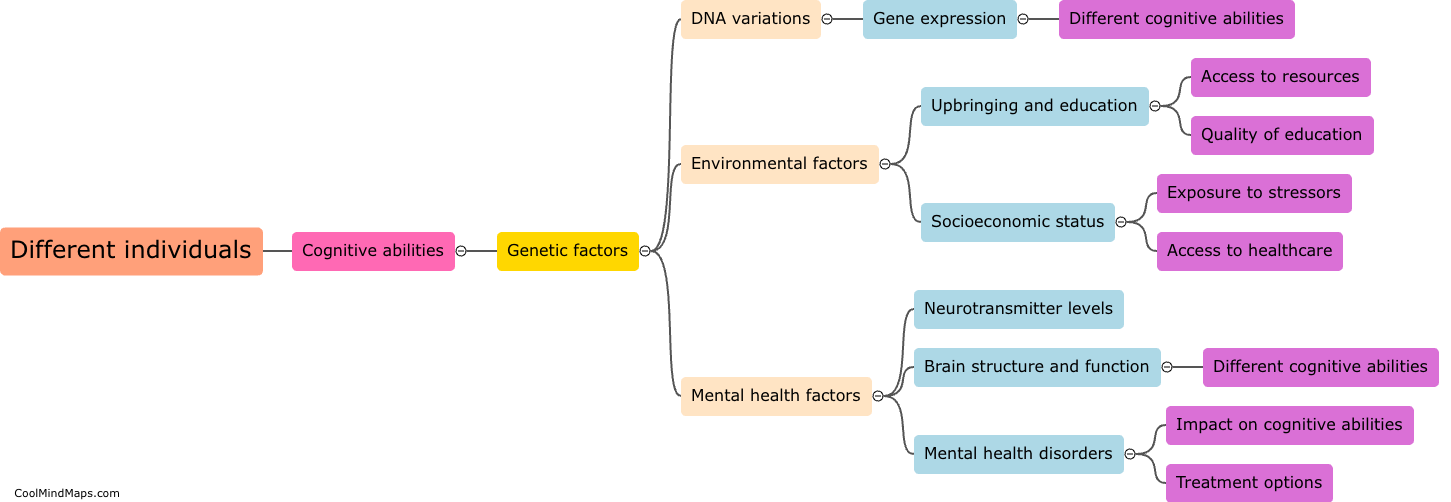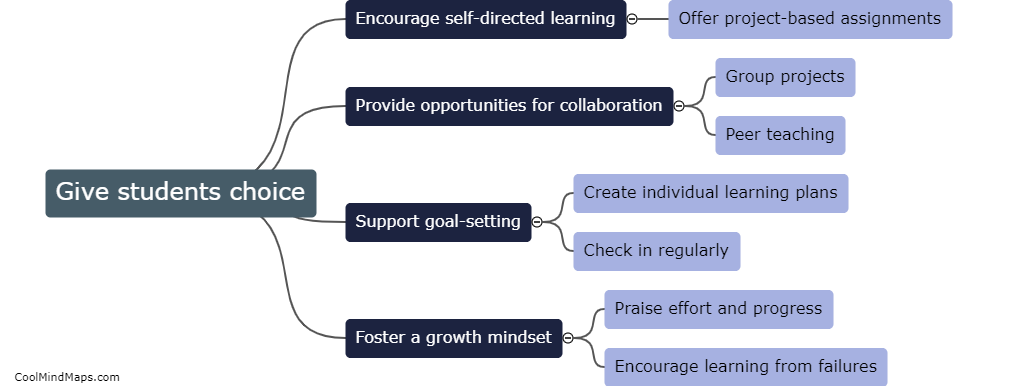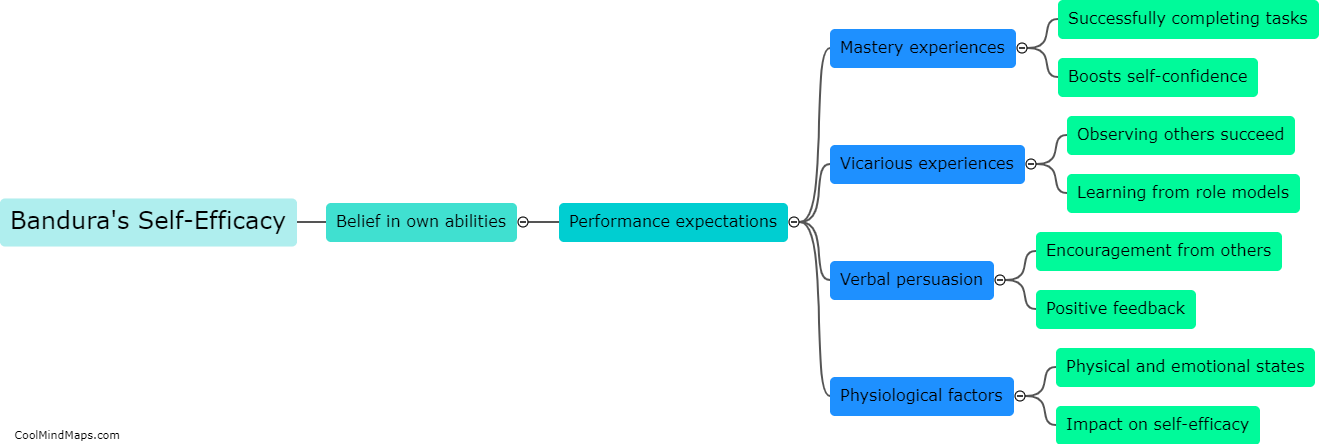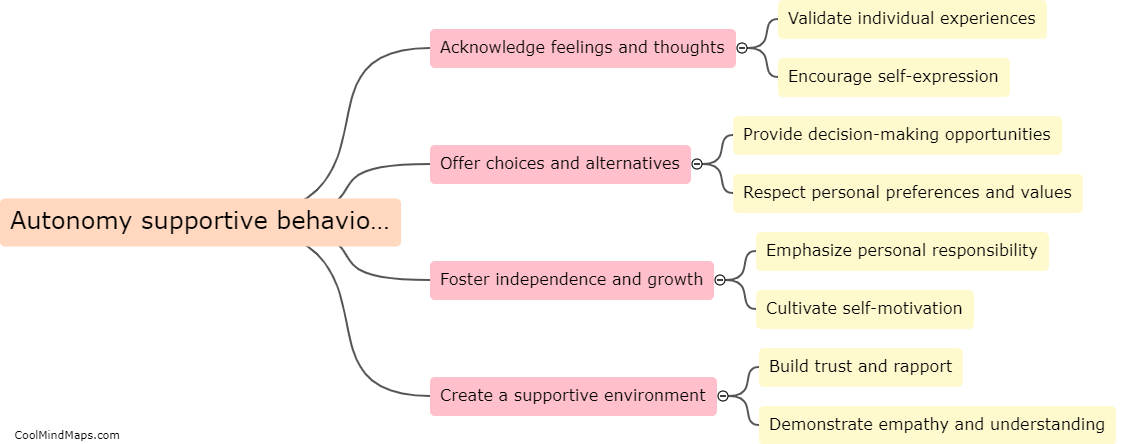What are the four sources of self-efficacy?
According to Albert Bandura's theory of self-efficacy, there are four primary sources that contribute to an individual's sense of self-efficacy. These sources include mastery experiences, social modeling, social persuasion, and physiological and emotional states. Mastery experiences refer to past successes and accomplishments that build confidence and belief in one's abilities. Social modeling involves observing and imitating others who demonstrate successful behaviors. Social persuasion entails receiving encouragement and feedback from others that bolsters one's confidence. Lastly, physiological and emotional states can impact self-efficacy by influencing levels of arousal, stress, and mood. Overall, these four sources work together to shape an individual's belief in their capabilities to succeed in various tasks and challenges.

This mind map was published on 29 March 2024 and has been viewed 71 times.
